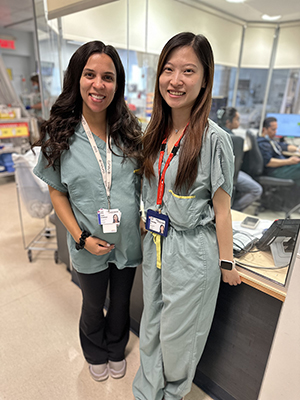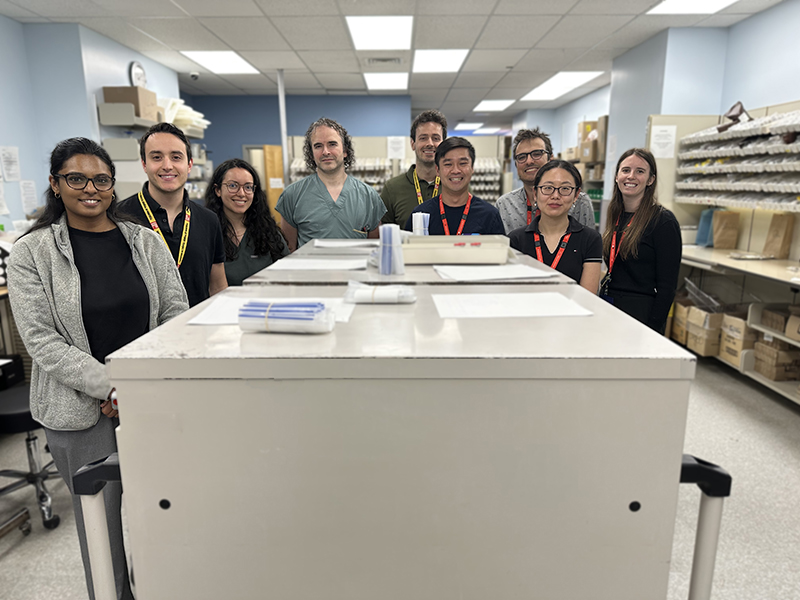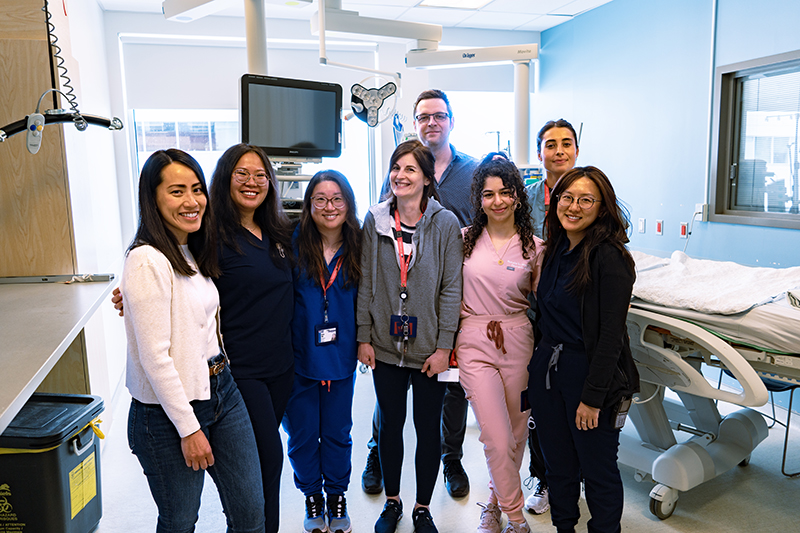Advanced practice pharmacists: experts at the heart of care
At the MUHC, excellence in healthcare is supported in part by the expertise of pharmacists.
Hospital pharmacists with a Master's degree in advanced pharmacotherapy play a central role in managing patients' medication therapy. Their extensive training allows them to provide comprehensive care for pharmacological treatments, particularly in specialized units such as intensive care, oncology, internal medicine, and emergency care.
In Quebec, around 2,000 pharmacists work in hospitals. Their contribution to healthcare teams has been proven: better treatment outcomes, fewer side effects, and reduced costs and hospital stays. They help improve the safety, effectiveness, and flow of care.

Due to the specific nature of each clinical sector, pharmacists develop in-depth knowledge and skills about the medications and therapeutic approaches specific to their field of practice. Treatments in oncology, neurology, transplantation, and intensive care often involve very different types of molecules. Pharmacists adjust drug therapies to take into account the individual characteristics of each patient, from neonatology to geriatrics.
In some units, advanced practice agreements also allow pharmacists to play an expanded role, including initiating therapies independently. The MUHC is a pioneer in this area, being one of the first hospital centres in Quebec to implement these agreements in care units. In the intensive care units at the RVH, MGH, and The Neuro, for example, these agreements make a difference every day.
“I now have more flexibility in my practice. It allows me to be more efficient in providing quality care to patients, while also strengthening our role within the care team,” says Pharmacist Marc-Alexandre Duceppe.
“I like the dynamic aspect of intensive care,” explains Pharmacist Marc-Alexandru Dobrescu. “Being part of the treatment team, participating in clinical decisions, seeing the immediate effect of a medication... it's very stimulating.”

At the MUHC, pharmacists have advanced practice agreements in intensive care (RVH, MGH, and The Neuro), hematology-oncology, and internal medicine (at the RVH). These agreements also exist in certain outpatient clinics, such as hemodialysis, the heart failure clinic, oncology, and the chronic viral illness clinic.
“We are even seeing the benefits of these agreements emerge in outpatient clinical practice,” notes Pharmacist Rusaila Shakhtur. "For example, at the heart failure clinic and the oncology clinic, among others, pharmacists closely monitor patients in a direct care relationship. They can now prescribe more to help their patients."

Pharmacy practice in the emergency department also stands out, with pharmacists involved in caring for patients in the resuscitation room. They’re also part of the daytime code blue team — a role they share with pharmacists from acute coronary care (RVH) and intensive care (MGH).
A practice for the future
With increasingly complex treatments and workforce challenges, pharmacists in healthcare facilities are a key resource for improving access, quality, and safety of care. Their expanded role and greater presence in care units over the past 30 years have transformed the way we deliver healthcare.

